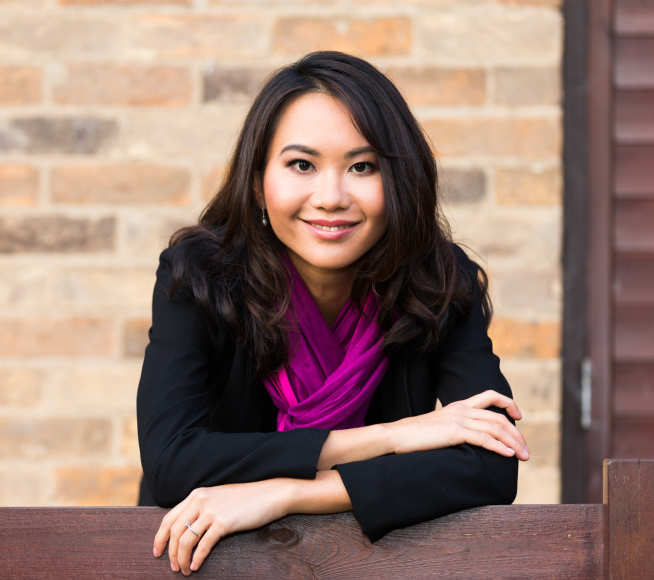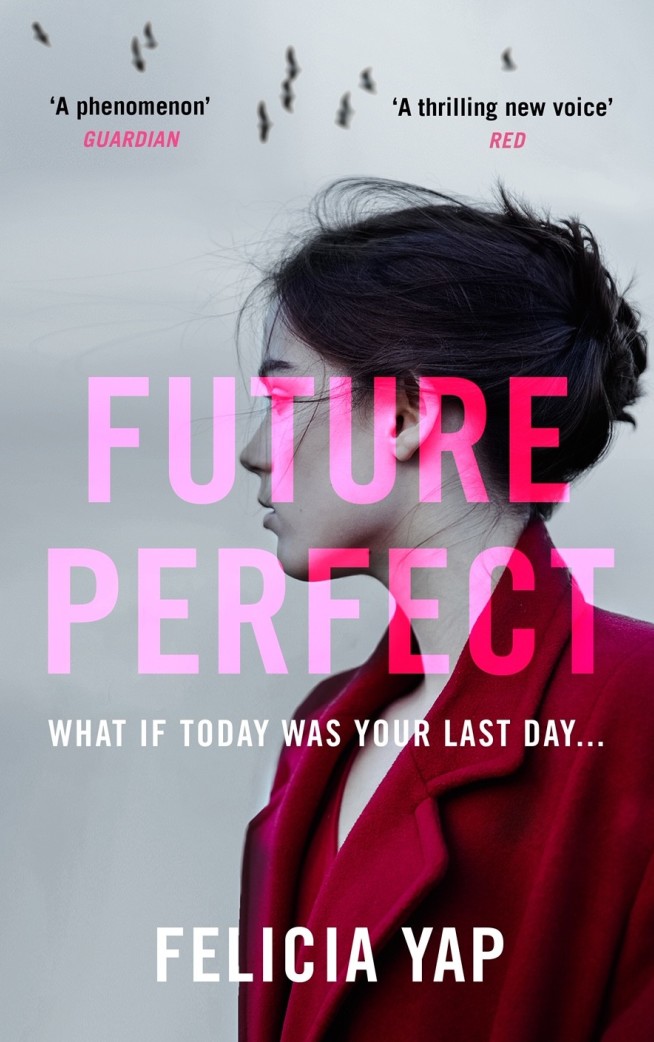
Felicia Yap (Biochemistry 2003) is an author. She published her debut novel Yesterday in 2017 and her second novel Future Perfect in March 2021 (visit Felicia's website for more information). She was born in Malaysia and made the difficult decision to leave home to study in Singapore and then on to Imperial and then Cambridge. Hear about Felicia's journey from Kuala Lumpur to Imperial and beyond.
What did you learn during your time at Imperial, in class or out?
I learnt to read and write science papers. This skill has proved extremely useful in later life. After Imperial, I went on to write for the Science and Technology section of The Economist. Part of my work involved deciphering complex papers in Nature, Science and other journals and explaining their gist to the public. Various spoof science articles have cropped up in my fiction, too. There are ‘pieces’ from Scientific American, Wired and other publications in my debut thriller Yesterday.
Can you tell us about your studies at Imperial?
One of the highlights was mating white-eyed Drosophila flies with red-eyed Drosophila in the laboratory… and getting Drosophila flies with lovely pink eyes! I also enjoyed various DNA sequencing lab experiments and neuroscience-imaging work featuring the brains of guinea pigs.
What is your fondest memory of your time here?
Doing lots of hiking trips in Wales and the Peak District with Imperial’s Fellwanderers Society. My team came fourth in a 20-mile night hiking competition organised by the club. These trips helped spark a love of long walks in the countryside – I’ve since done numerous hiking trips in lots of countries.

Tell us a bit about the work you’re doing now...
I write crime thrillers. My second book Future Perfect is a murder mystery set in a near future where computers will predict how we will live and when we will die. A bomb goes off on a catwalk in Manhattan, killing a model. Police Commissioner Christian Verger has to solve the case quickly (whilst grappling with his mortality and trying to win back the woman who left him) because his voice assistant Alexa is 99.74% sure he will die tomorrow. While Future Perfect is partly a race to solve a murder before it’s too late, it’s also a love story of a couple torn apart by secrets, grief and guilt.
How has what you learnt at Imperial helped you in your career so far?
I learnt that nothing is ever wasted, that all prior experiences are immensely useful when one is working on a novel. Everything feeds back into one’s writing, often in unexpected ways. It could be random conversations one has overheard in a science lab, obscure things one has seen, heard, felt, smelt or tasted along the way. The process of seeking out different experiences, of being open to new possibilities, often enriches one’s writing.
What have been your career highlights and lowlights?
Highlights include signing with my brilliant agent Jonny Geller, publisher auctions for my debut novel Yesterday in multiple territories, as well as television and radio interviews in the UK, Serbia, Poland and India. I also had a wonderful time meeting readers across the globe and speaking at literary festivals in the UK, US, Iceland, Canada, Malaysia, Jersey and Singapore. I was elected to a Hawthornden Fellowship in 2020, just before the lockdowns, and spent an amazing month writing in a castle in Scotland (one complete with a turret and dungeon).
Lowlights include not being able to think well on some days. I would describe the condition as ‘thinker’s block’, not ‘writer’s block’. My brain would feel like mush on these days; ideas would fail to form. When one is writing a high-concept thriller (an activity which often requires a steady stream of working ideas), this can be pretty frustrating. I learnt to check into hotel rooms to write and concentrate on my work, or simply to go for a long walk.
A major lowlight was losing my manuscript of Future Perfect after a burglar broke into my home and stole my laptop at the precise moment all files on it were being transferred to a brand-new one. It turned out that I hadn’t backed up my computer properly for months and my manuscript had vanished with the thief. I had to re-write much of the manuscript from memory, a dreadfully ironic activity as my debut thriller Yesterday is a murder mystery set in a world where people can only remember one day – or two.
What does a typical day look like for you now?
I don’t have a typical day. I try hard to make each day unique and memorable, not to fall into set habits or patterns. That’s because routines can often be stifling to the mind, maybe even curtail inspiration or blunt creativity. I do have an ‘ideal day’, though, which consists of lots of productive writing in the morning, an hour of scuba diving, some Pilates/yoga, a long walk along a beautiful beach (or up and down a few hills), followed by an excellent dinner. I do my best to make these ‘ideal days’ happen more often, or make at least one of these elements of an ‘ideal day’ happen each day. It isn’t easy!
What would be your advice for current students?
Keep trying hard, keep believing in yourself. Dreams really do come true if you continue to have faith in your own abilities. It’s important never to give up, to keep trusting your instincts. I never stopped believing in the story I wanted to tell, even though the going was difficult at times.
Also, be curious and embrace the unknown. Be observant, have an open mind, seek out new experiences and people. Keep asking new questions about the world you inhabit, about the people who surround you. Wonderful things happen as a result of being curious. Inspiration may occur. It is, after all, the alchemic response to the unfamiliar and unexpected.
What’s the most difficult decision you’ve ever had to make?
Whether or not to accept a full scholarship from the Ministry of Education to do my A-Levels at Hwa Chong Junior College in Singapore. It was difficult to leave my home and family in Kuala Lumpur at the age of 17 to study (and live in a college dormitory) in a different country. With hindsight, it was a seminal decision that changed my life – I wouldn’t be the person I am today if I didn’t take up that scholarship.
What are you most proud of in your life?
I’ve always wanted to be a published novelist, and I’m delighted that my dream has come true.
Do you have a favourite quote or saying?
I tell myself that ‘happiness is a process’ (one of my characters in Yesterday is quoted as saying as much) and I should enjoy the process of reaching my goals.
Is there anything else you’d like to share?
All my studies, from A-Levels in Singapore to my undergraduate studies at Imperial to my doctoral studies at Cambridge were funded by scholarships (I received ten scholarships in total). A kind benefactor also made it possible for me to study at Imperial and to go on to a doctoral degree at Cambridge. I would have never written Yesterday if I hadn’t spent seventeen years in Cambridge and London. I promised my benefactor that I would, in turn, help someone deserving if I’m ever in a position to do so. In keeping with this wonderful principle of paying forward, I funded the Yesterday Scholarship at Curtis Brown Creative for a writer from a less-privileged background and hope to fund more scholarships for deserving students in the future. Here’s my blog post about the scholarship.
Felicia's advice for students
"Keep trying hard, keep believing in yourself. Dreams really do come true if you continue to have faith in your own abilities. It’s important never to give up."